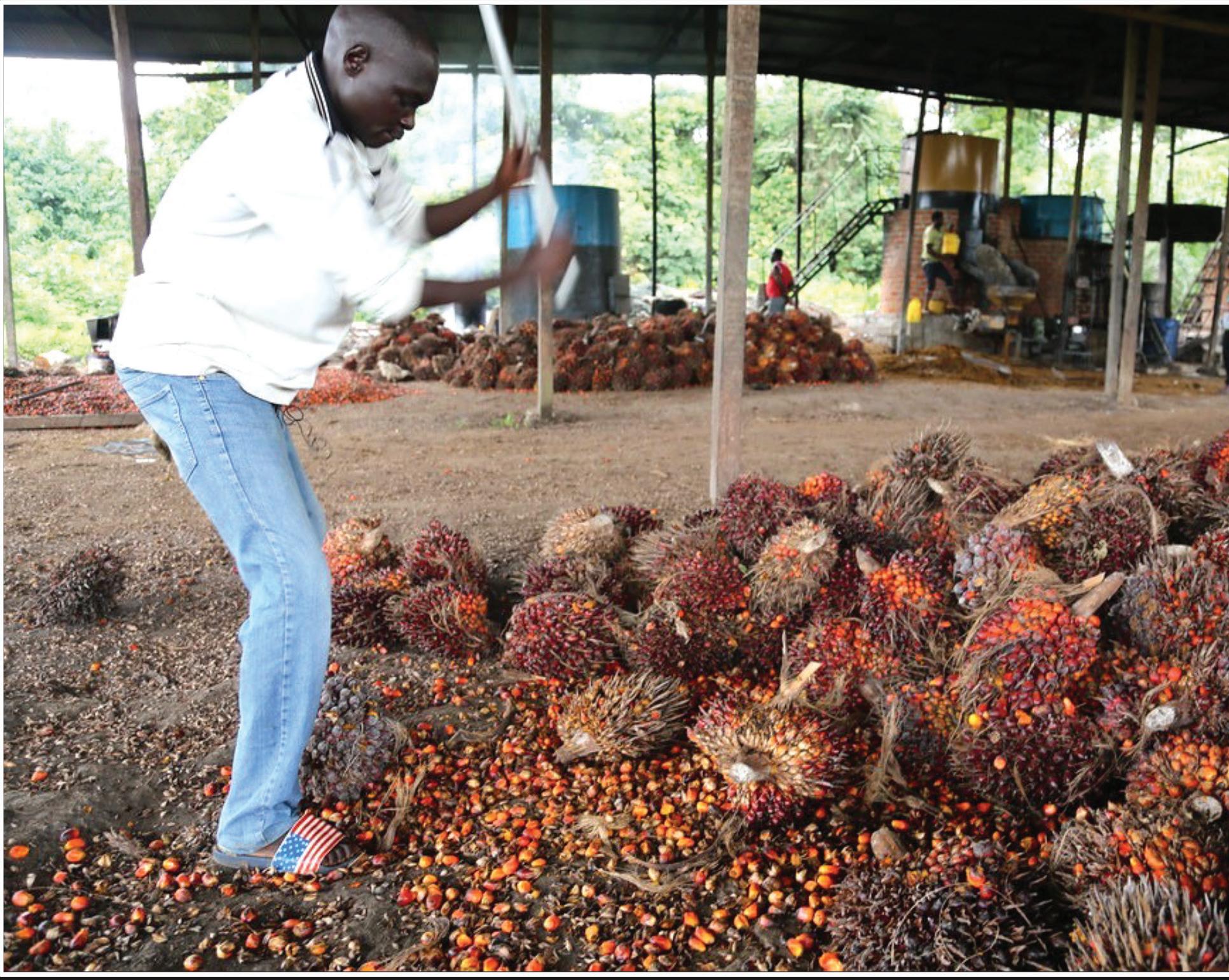
9 minute read
Africa’s oil palm sector
PALM OIL
Africa’s oil palm sector
Palm oil accounts for some 70% of edible oil consumption in Africa, with around 22M ha of land available to convert to oil palm plantations. However, challenges face companies and communities involved in developing the crop on the continent Serena Lim
Long before palm oil fl ourished in the humid tropics of Malaysia and Indonesia, West Africa was home to the crop, according to former Roundtable on Sustainable Palm Oil (RSPO) CEO Datuk Darrel Webber.
Evidence of palm oil’s use as a staple food crop dates back as far as 5,000 years.
“Palm oil provided a vital food source for local communiti es and was one of the region’s earliest traded commoditi es.”
Throughout the 1800s, Briti sh traders imported African palm oil, using it for a growing number of products, from soap to margarine to candles, according to Nati onal Geographic. Once scienti sts discovered how to isolate glycerine from the oil, its applicati ons multi plied to take in pharmaceuti cals, photographic fi lm, perfume and even dynamite.
By the turn of the 20th century, oil palms had been shipped to Malaysia and Indonesia, and commercial plantati ons began to take hold there. Today, the two Asian countries are the largest palm oil producers in the world, while the oil palm sector in Africa remains largely overlooked.
Outdated views
“What comes to mind when you think of palm oil in Africa?” Akwaaba Ventures director Ranveer Chauhan asked delegates at the Internati onal Palm Oil Congress and Exhibiti on (PIPOC) in 2019.
He said some outdated views included: • The oil palm sector does not even exist • Maybe there are just natural groves and all palm oil is imported • Africa is too primiti ve for sustainability initi ati ves • The conti nent is not ready for investments or partnerships home of the oil palm tree (Elaeis guineensis), it is the only consumer of the unrefi ned red palm oil, Chauhan said. “Palm oil is the largest edible oil produced, imported and consumed in African markets today.”
Palm oil accounts for around 70% of edible oil consumpti on in Africa and it is esti mated that up to 22M ha of land in West and Central Africa could be converted to oil palm plantati ons by 2021, says Webber.
According to Chauhan, there are 19 countries lying in the equatorial zone where palm oil can be produced (see map, p16). Eleven of these countries are best suited for foreign direct investment (FDI), having enough suitable available agricultural land, rural labour, and existi ng markets serviced through imports. The countries marked in dark green on the map indicate where foreign investment can be made while light green nati ons show where local investment should be boosted.
Of the 19 countries, Nigeria is the biggest producer and consumer of palm oil. Nigeria produces around 1M tonnes/year of palm oil. Its government announced in June 2019 that it was planning to invest 180bn naira (US$500M) to increase palm oil producti on to 5M tonnes/year by 2027 by off ering low interest loans to farmers and erecti ng barriers on crude palm oil imports, a Bloomberg report says.
Nigeria ranks third in the world in terms of land area planted with oil palm but it is only the fi ft h largest palm oil producer due to low yields as much of its oil palm culti vati on is grown by smallholders.
The policy aims to double the oil palm planted area from 3M ha to 6M ha to meet all of the country’s domesti c palm oil demand by 2027. Nigeria spent about US$500M importi ng 600,000 tonnes of palm oil in 2018, Bloomberg says.
Africa also imports much of its edible oil needs, consuming some 10-12M tonnes/ year and producing around 4M tonnes/ year, Chauhan told the PIPOC 2019 conference.
This level of consumpti on is “dangerously low” and the market should be consuming some 25M tonnes/year to achieve healthy levels, he said.
Investment challenges
Factors supporti ve of edible oil consumpti on growth in Africa are its urban populati on growth of 50% and its upward GDP per capita growth.
“Africa also has the fastest populati on growth in the world today,” Chauhan said.
However, as Africa becomes the new fronti er of industrial palm oil producti on, many challenges remain for the companies and communiti es involved.
“Investment and expansion in palm oil is growing – and growing fast – in

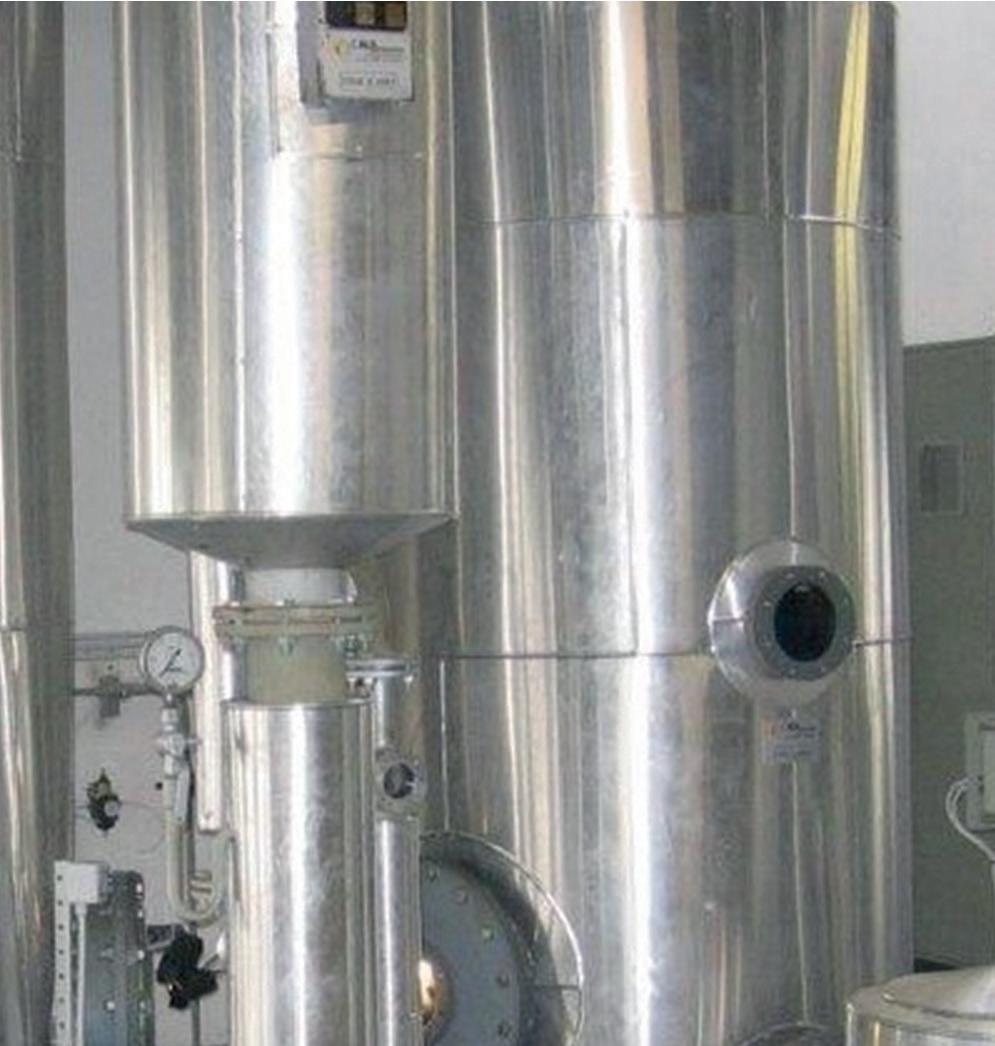
Removing Sulphates from soapstock splitting effl uent water: the sustainable solution for purifi cation & re-use

Discover with CMBernardini an effi cient and sustainable solution to one of the major problems aff ecting Oils & Fats Manufacturers’ productivity and production costs.
Our system, developed to remove the sulphates in the effl uent water, can be easily installed as an add-on of existing soapstock splitting plants
The fi nal products obtained from our process shall be: Distilled treated water with C.O.D < 300 , useful to be used as make up to evaporation towers, or other uses; Sodium sulphate deca-hydrate, useful for fertilizer production;
The new plant proposed by CMBernardini shall be easy to install, simple to use and very eff ective in terms of water treatment.

Contact us to know more!

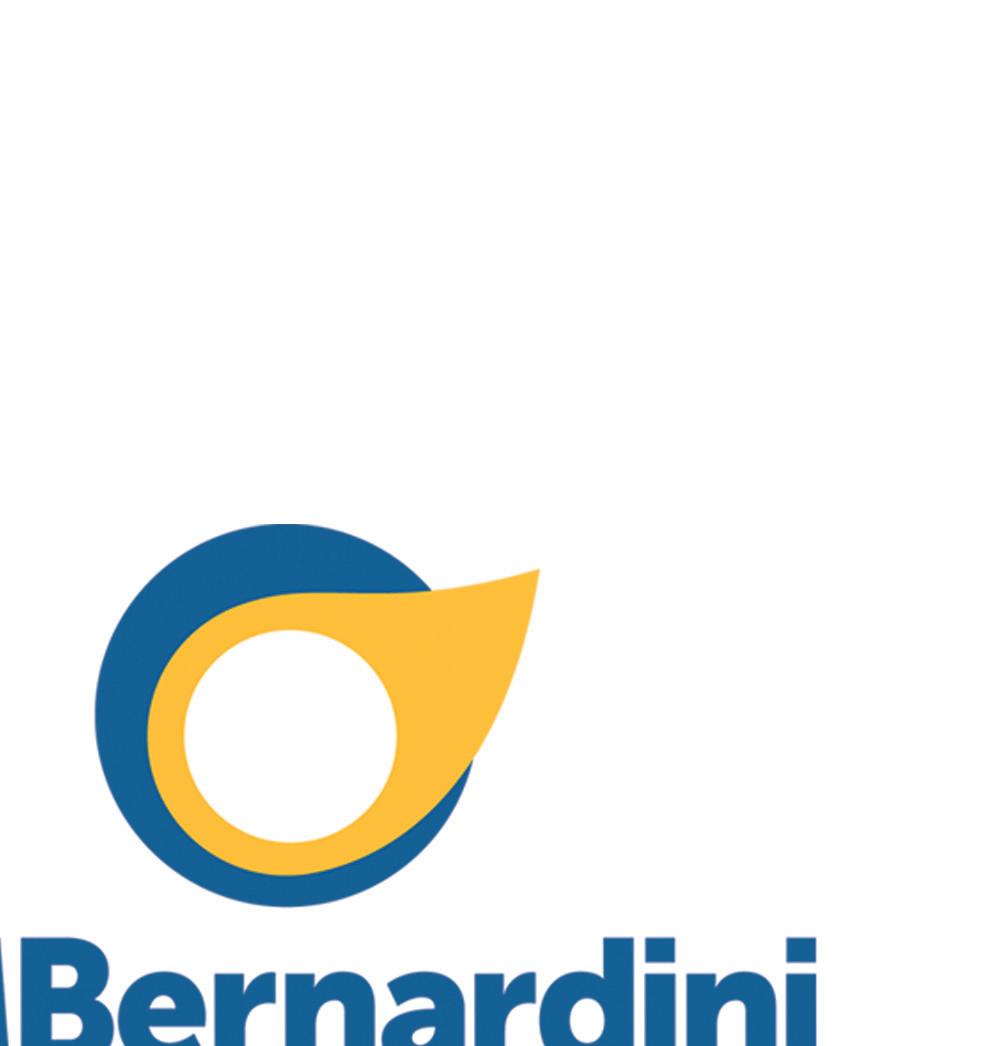

We are always close to our clients, as a reliable partner to smoothly realise your projects for the future www.cmbernardini.com
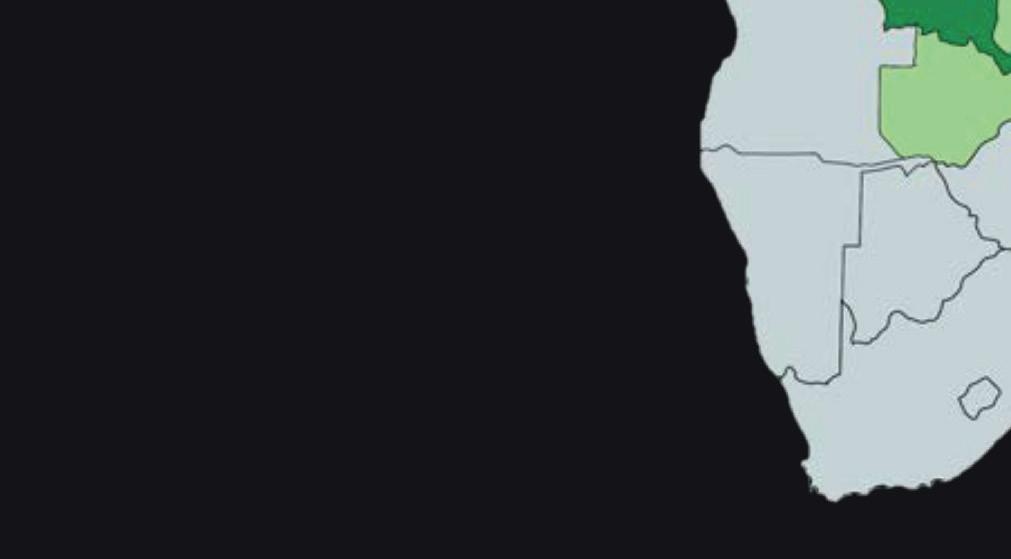
Africa,” the Guardian newspaper reported Abraham Baff oe, Africa regional director of NGO Proforest, as saying back in 2016. “If palm is planned and implemented very well, then it has the potenti al to provide jobs and economic development – but if 10 Deg N planning and implementati on is poor, it has the potenti al to create deforestati on, loss of habitat and loss of livelihood in local communiti es.” In Africa, an esti mated 3M ha of land “traditi onally used or inhabited by local communiti es” – covering both forest and farmland – have been acquired by palm oil companies, according to Devlin Kuyek, 10 Deg S a researcher with non-profi t farmers organisati on GRAIN. That is in line with an Economist report in 2014 which said that in the past decade, politi cians in West Africa and countries of the Congo basin had leased out around 1.8M ha of land for palm oil plantati ons, with interested companies including Wilmar Internati onal, Olam Internati onal, Sime Darby, Golden Veroleum Liberia (GVL) and Equatorial Palm Oil, according to a March 2019 report published by non-profi t media outlet Ensia. Olam Internati onal’s palm oil operati ons Negati ve reports have included those in Gabon have been cited as evidence from Liberia’s Sinoe County, where that sustainable palm oil operati ons can residents say that since the palm oil be implemented in Africa. company GVL arrived in 2010, crops have been destroyed, shrines desecrated, burial grounds and grave sites denigrated, rivers diverted or dammed, and precious wetland areas polluted, the Ensia report said. In Sierra Leone, a court ruling in November 2018 ordered Singapore-based palm oil company Siva Group to return land to the community and pay hundreds of thousands of dollars in unpaid rent. Yet also in Sierra Leone, an outgrower model has been developed in which a company operates some land as a plantati on but also provides smaller plots of land on which local farmers can culti vate palm trees independently. And while the 2004-established RSPO has come under criti cism for not being eff ecti ve enough, the organisati on does serve as a check on companies, says Daniel Krakue of Social Entrepreneurs for Sustainable Development, a non-profi t organisati on in Liberia. Baff oe said in the Guardian report that the concept of Free Prior and Informed Consent (FPIC) is at the heart of the sustainability agenda for the palm oil industry. The principle – that a community has the right to give or withhold its consent to proposed projects that may aff ect lands that they customarily own, occupy or use – is now a key doctrine in internati onal law and central to the RSPO’s principles and criteria.
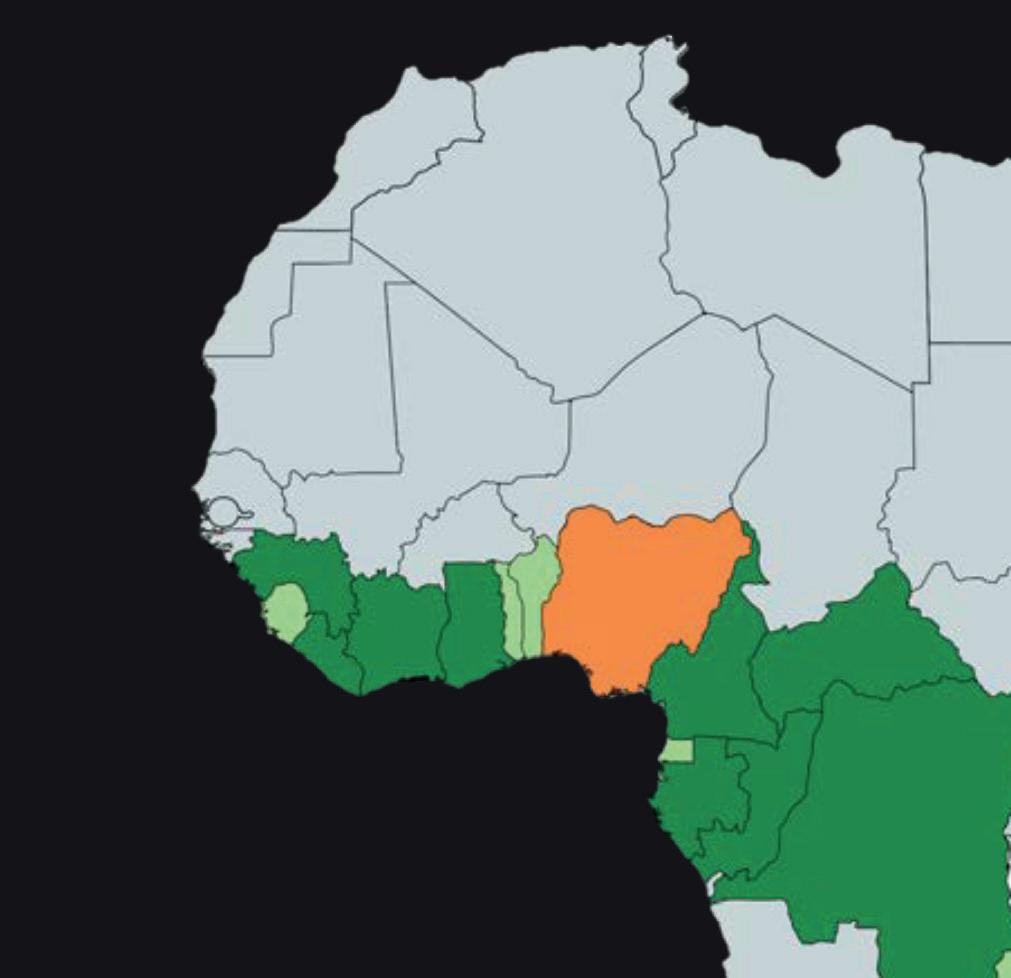
10 Deg N Guinea Bissau Nigeria
Sierra LeoneLiberia Ivory Togo Coast Ghana Benin
Cameroon Central African Republic
Equatorial GhanaGuinea Rep. of
Gabon Congo Dem. Rep. of Congo
10 Deg S Ethiopia
Uganda
Tanzania
Zambia
AFRICA: THE OIL PALM SPACES
Olam in Gabon
Olam operates three oil palm plantati on areas in the Central African nati on of Gabon in a 60:40 joint venture with the government.
Situated on the Equator and on Africa’s west coast, more than 76% of Gabon is covered in forest, with 11% of its land area protected in nati onal parks.
Recognising the confl icti ng demands on its land, the government embarked on a project few other nati ons had ever tried – a nati onal land-use plan, Nati onal Geographic wrote.
Gabon Nati onal Parks Service (ANPN) director Professor Lee White oversaw the process of mapping the country’s land and wildlife and determining which areas should be developed for agriculture.
In 2011, the government formed a joint venture with Olam, granti ng it two new oil palm concessions and later selling it an existi ng plantati on in 2016.
“Africa had not seen sustainable, large-scale palm developments unti l OPG successfully planted 31,500ha across two sites (Awala and Mouila) in Gabon,” says Supramaniam Ramasamy, Olam’s president and global head of palm and rubber plantati ons.
“The area planted was even more notable considering that many other palm development projects in the wider region had suff ered major setbacks due to politi cal risks, diffi culty in securing large land banks without encumbrances, community issues and unclear policies.”
In November 2019, Olam announced that its Makouke plantati on was its fourth to become RSPO certi fi ed.
“The certi fi cati on strengthens Olam’s leadership as the largest certi fi ed producer in Africa with producti on capacity of 92,000 tonnes of certi fi ed sustainable palm oil (CSPO), 16,866 tonnes of certi fi ed sustainable palm kernel (CSPK) and 6,500 tonnes of certi fi ed sustainable palm kernel oil (CSPKO),” Olam said at the ti me.
Today, the Olam Palm Gabon (OPG) partnership has 112,455ha of RSPO certi fi ed oil palm plantati ons and 99,000ha of High Conservati on Value forest, wetlands and savannah permanently protected, according to Olam’s 2019 annual report.
The company is committ ed to no further development or expansion of new plantati ons unti l all its plantati ons achieve full RSPO certi fi cati on this year.
OPG also operates two palm oil mills, one kernel crushing plant and an edible oil refi nery producing cooking oil and soap, sold to Gabonese consumers.
“What we’re trying to do in Gabon is fi nd a new development path where we don’t cut all our forest down but keep a balance between oil palm, agriculture and forest preservati on,” Prof White told Nati onal Geographic.








